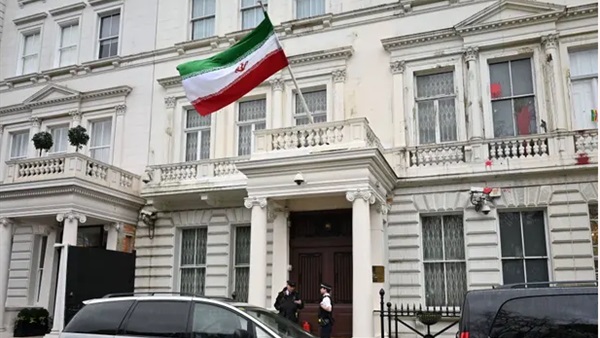UK looks clumsy and powerless in wake of Iran’s execution of Alireza Akbari

Britain’s relationship with Iran has a fraught, unedifying
history, dating back to the 18th-century imperial tussle between England,
Napoleonic France, and tsarist Russia for control of Persia. Iranians have long
memories. To this day, they blame the UK for many of their woes.
Britain invaded in 1941 to limit Nazi influence and protect
the Anglo-Persian company’s oilfields. In 1953 it intervened again, mounting a
coup, with US help, to overthrow a democratically elected government and
bolster the rule of the autocratic, pro-western shah.
Iran’s 1979 Islamic revolution, and US embassy siege,
produced a rift that has never fully mended. The US and Iran still have no
formal diplomatic ties. Hardliners view the UK’s opulent embassy and gardens in
central Tehran as symbols of centuries of national humiliation.
Whether that embassy is closed, and Britain’s ambassador
recalled, is one of the decisions now facing Rishi Sunak and foreign secretary
James Cleverly in the wake of Saturday’s execution of Alireza Akbari, a
British-Iranian dual national accused of spying.
The Foreign Office has argued over the years that despite
Iran’s often egregious behaviour, it is better to keep lines of communication
open. This approach supposedly helped secure the release last year of aid
worker Nazanin Zaghari-Ratcliffe, another dual national.
But the regime, dominated by clerical hardliners, appears
increasingly impervious both to quiet diplomacy and more forceful, public measures
such as sanctions. Sunak and Cleverly’s ill-judged, culturally insulting
condemnation of the regime as “barbaric” will further raise tensions.
Rather than making Britain sound strong and resolute,
Cleverly’s choice of language smacks of powerlessness. Former Tory foreign
secretaries Douglas Hurd and Lord Carrington would not have been so clumsy. But
standards have fallen a lot since their time.
What can the government realistically do? It could suspend
diplomatic relations and send Iran’s London-based diplomats packing – and
probably it should, at least for a while. It can impose yet more sanctions,
proscribe the Islamic Revolutionary Guard Corps and complain to the UN.
Yet if it truly wants to punish the mullahs, Britain will
need American help. Countering the threats and challenges presented by Iran is
an increasingly urgent issue for all the western democracies, as this newspaper
pointed out last week.
A tougher stance will require the US to take a lead. Trouble
is, Joe Biden has other worries – and he doesn’t much listen to this
government.







